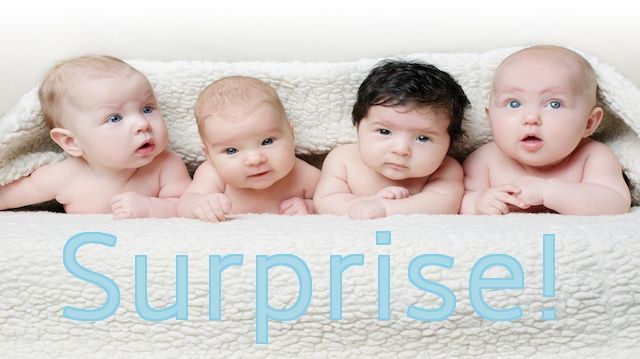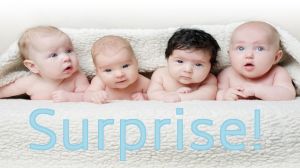
It turns out that babies learn best when they are naturally surprised by something. A recent study has referred to infants as natural little scientists who test hypotheses when they are surprised by things. The research suggests that babies learn more from an object that behaves unexpectedly than from similar objects that act predictably.
Babies learn best when their expectations are defied
The research from Johns Hopkins University revealed that infants have innate knowledge and expectations about the world and objects in them. When things happen that don’t match those expectations, they focus on those things and test different theories about them.
“For young learners, the world is an incredibly complex place filled with dynamic stimuli. How do learners know what to focus on and learn more about, and what to ignore? Our research suggests that infants use what they already know about the world to form predictions. When these predictions are shown to be wrong, infants use this as a special opportunity for learning,” explained co-author of the study Lisa Feigenson, a professor of psychological and brain sciences in the university’s Krieger School of Arts and Sciences. “When babies are surprised, they learn much better, as though they are taking the occasion to try to figure something out about their world.”
Surprising babies to test learning efficiency
 Researchers conducted four experiments using preverbal 11-month-old infants. The experiments were designed specifically to determine if infant learning was more effective when it involved things that defied their expectations. When that proved to be true, researchers also sought to find out if the surprising object would motivate the infants to want to learn more and understand the unexpected behavior.
Researchers conducted four experiments using preverbal 11-month-old infants. The experiments were designed specifically to determine if infant learning was more effective when it involved things that defied their expectations. When that proved to be true, researchers also sought to find out if the surprising object would motivate the infants to want to learn more and understand the unexpected behavior.
The experiments involved exposing babies to situations that were predictable, such as a rolling ball stopping when it encountered a wall. They were also shown situations that were surprising, such as the rolling ball appearing to pass through the wall.
When the babies were given new information about the surprising ball, they were proven to learn with greater efficiency. By contrast, the babies showed no evidence whatsoever of having learned from the predictable ball. Beyond those findings, it was also noted that the infants preferred to play with the surprising ball over other toys, even if they were new but provided no surprising action.
Not only did they learn better by surprise, they wanted to figure it out
Of particular interest, it was discovered that babies not only learned more when it came to the surprising objects, but they wanted to understand the unexpected behavior of the object. For example, some babies took the same ball that had seemed to pass through a wall and tested how solid it was by banging it on a table surface. As another example, babies also saw a ball that seemed to hover in the air, so they tested it by dropping it onto the floor. These observations indicate a desire by infants to test hypotheses and understand the surprising behavior of the objects.
“The infant’s behaviors are not merely reflexive responses to the novelty of surprising outcomes, but instead reflect deeper attempts to learn about aspects of the world that failed to accord with expectations,” explained lead study author Aimee E. Stahl, a doctoral student in psychological and brain sciences. “Infants are not only equipped with core knowledge about fundamental aspects of the world, but from early in their lives, they harness this knowledge to empower new learning.”
—The Alternative Daily
Sources:
http://www.latimes.com/science/sciencenow/la-sci-sn-babies-learning-surprise-20150401-story.html#page=1
http://www.sciencemag.org/content/348/6230/91
http://hub.jhu.edu/2015/04/02/surprise-babies-learning
http://www.smithsonianmag.com/science-nature/tiny-scientists-babies-learn-best-focusing-surprise-objects-180954839/?no-ist
http://www.thealternativedaily.com/learning-music-at-early-age-boosts-cognitive-function

